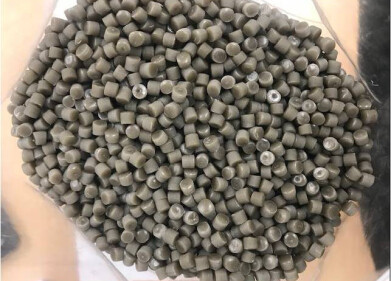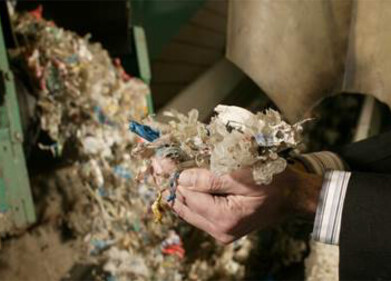Waste Management
Why Has a Short Film by Brits Angered Oil Giants Chevron?
Jul 08 2015
US oil giants, Chevron, have hit back at the British-makers of a short film, which depicts the story of toxic oil dumping in the Ecuadorean Amazon.
What is The Afectados about?
The short art-house documentary titled ‘The Afectados’ runs for 13 minutes and has no commentary. Instead the film uses the famous poem by Chilean Nobel literature prize winner Pablo Neruda. The poem is recited throughout the film by US actress Julie Christie.
The film tells the story of the 22 years of legal action in the US, European and Latin American courts. The litigations regard the historic dumping of 18 billion gallons of toxic wastewater and crude oil by US oil giants Texaco.
The toxic waste was dumped between the years 1964 and 1992, in a forest near the town of Lago Agrio. The filmmakers want to raise awareness about what is commonly known as Ecuador’s “Amazonian Chernobyl.”
What is The United Fruit Co. poem about?
The poem by Neruda is called the United Fruit Co. and was published in 1950. The subject is a large American firm that imported tropical fruit from Central America. The poet tells of his anger as the company exploit the people who worked for the company on the plantations. The workers are treated as slaves while the company get richer.
Why are Chevron angry about the film?
In a statement released by Chevron, the oil company said that the film had targeted the wrong person:
“If those involved in the production of this film truly wanted to help those affected by current social and environmental conditions in Ecuador, they would seek to hold Ecuador’s President Rafael Correa and his government accountable.”
Chevron has also pointed the blame at the state Ecuadorean oil company, declaring that it was also a major polluter at the time:
“Texaco conducted a 3-year, $40m remediation programme in the 1990s that was overseen and approved by the government. Ecuador’s state oil company, Petroecuador, has been operating exclusively in the region for the last 25 years. In that time, they have more than doubled the number of wells and have had an abysmal environmental record.
“Between 1995 and 2011 alone, Petroecuador has reported nearly 2,000 spills in the Amazon, yet none of this is mentioned in the film.
Julie Christie’s involvement in the film
Ms Christie focused on the disparity between rich companies and exploited workers:
“I find it both striking and distressing that in 2015, a poem written by Pablo Neruda in 1950 can still be a fitting statement on the relationship between a transnational company and poor, indigenous Latin Americans,” she said.
“Despite much legal chicanery across many years and in many territories, the real people at the heart of this story and the precious Amazon environment that was so badly impacted by what was an astounding level of pollution are both still neglected.”
The legal judgements made against Chevron
In 2011, a $9.5bn (£6bn) pollution judgment was made in Ecuador, but Chevron contested this. The company stated that the Ecuadorean court judgment was flawed.
In 2014, a US federal court accused the lawyer acting for the “afectados”, of fabricating evidence, using corrupt means, coercion and bribery. These accusations were strongly denied.
In March, 2015, the International Court of Justice in The Hague, Netherlands, upheld the original Ecuadorean court judgment.
Chevron took over Texaco’s responsibilities after it acquired the US company back in 2000. They have since argued that the original pollution has been cleaned up and that at the time, Texaco followed standard industry practices.
Director Mark Donne said that the documentary wasn’t just about Texaco:
“The film shows us the psychology of a multinational company and its attitude towards small sovereign states, innocent indigenous people and precious, diverse forest.”
If you’re interested in finding out about the longstanding affects of pollution read the following article, What Would Happen if Pollution Doesn’t Stop?
Events
Nov 26 2024 Paris, France
Nov 27 2024 Istanbul, Turkey
H2O Accadueo International Water Exhibition
Nov 27 2024 Bari, Italy
Biogas Convention & Trade Fair 2024
Nov 27 2024 Hanover, Germany
Dec 11 2024 Shanghai, China







-as-feedstock.jpg)






